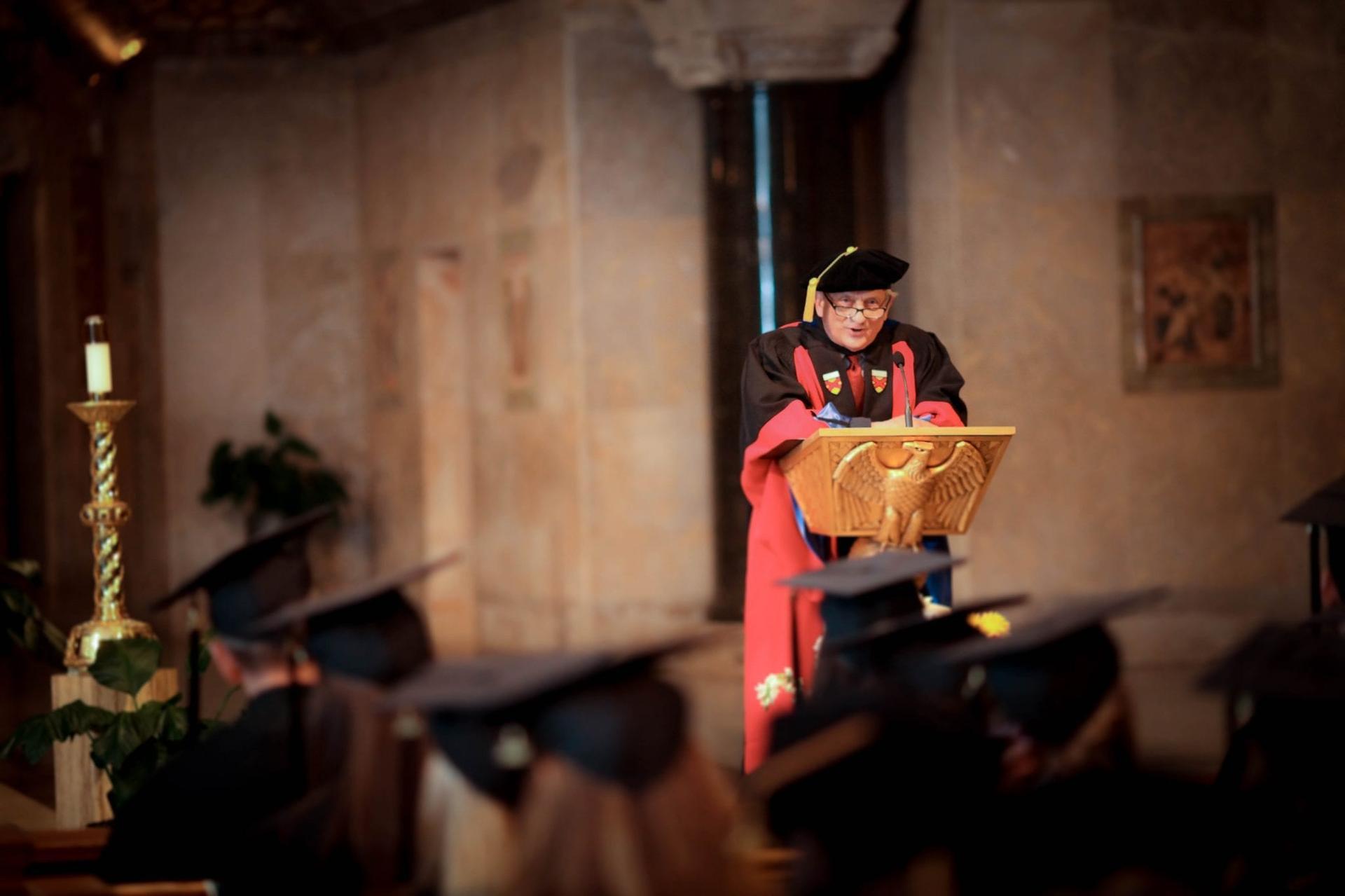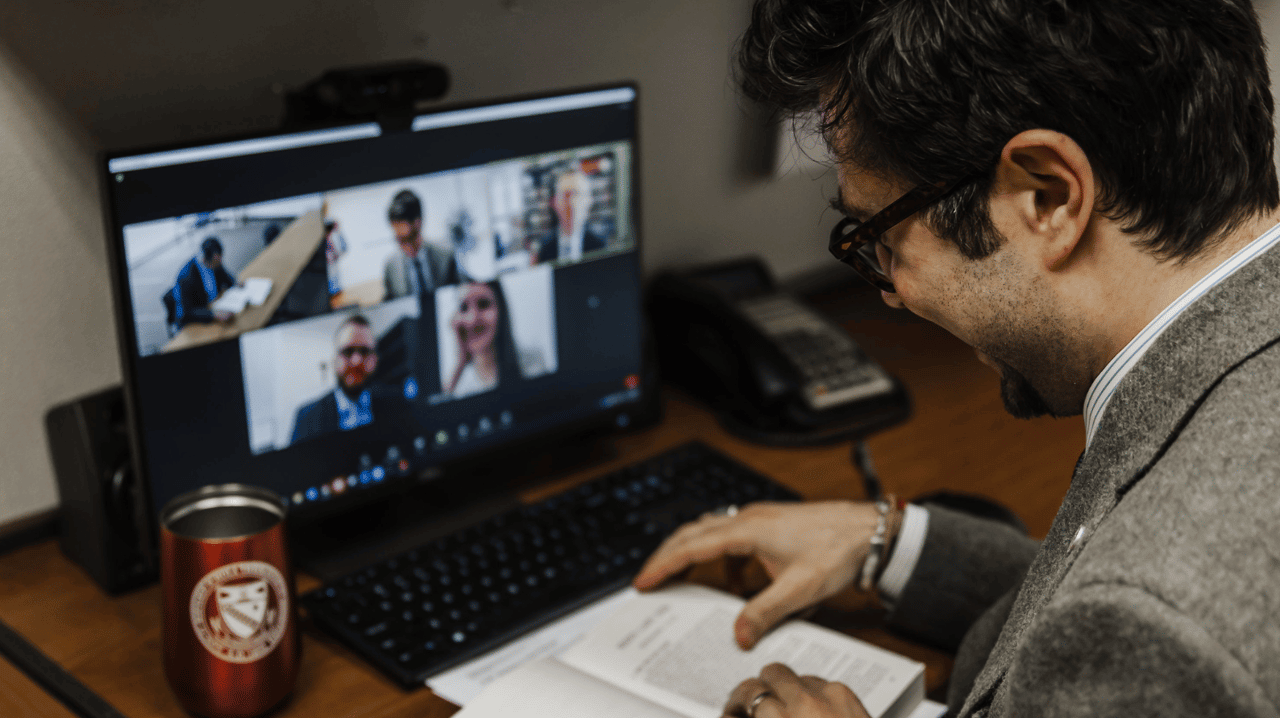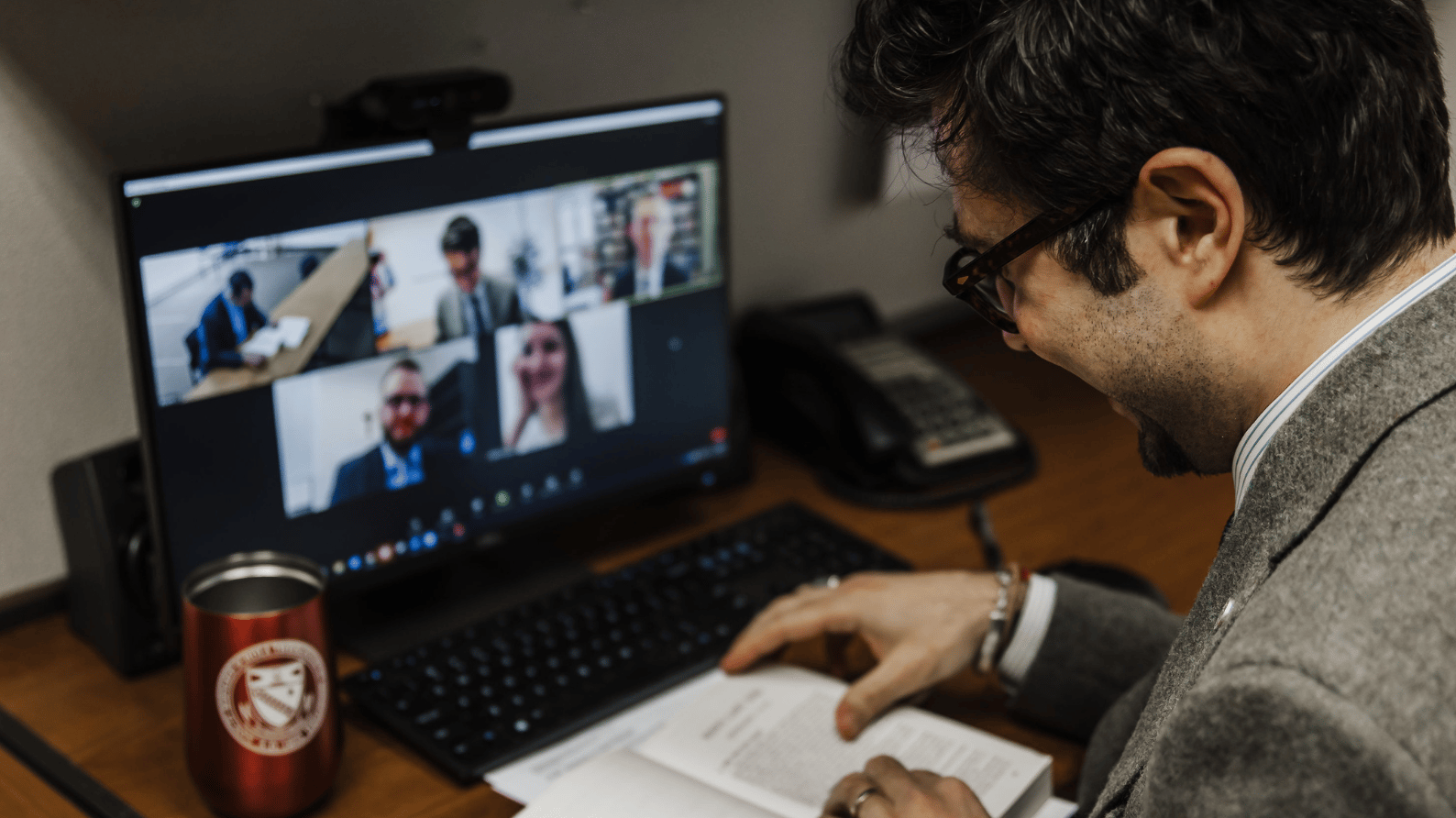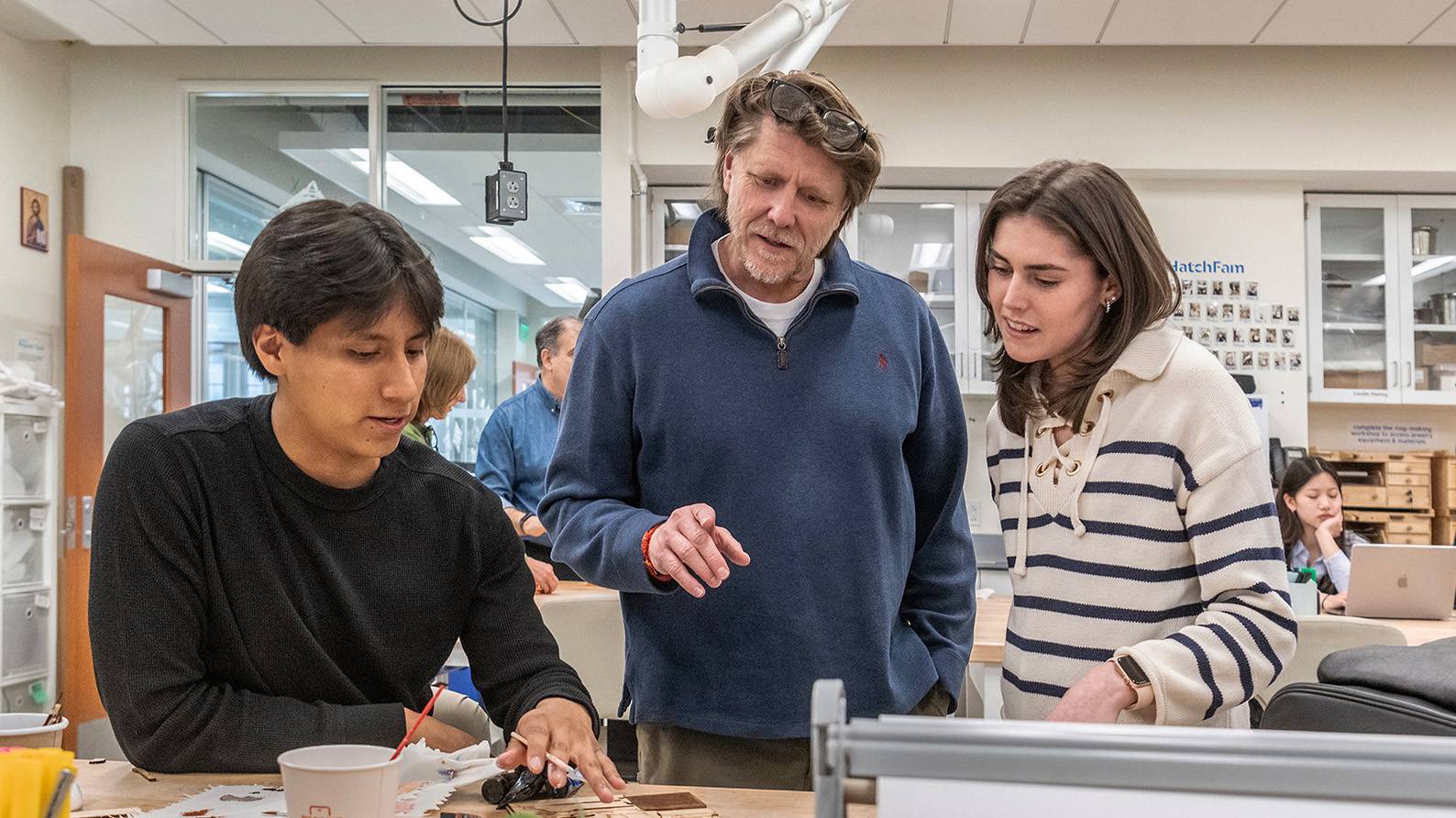In this Year of Mercy, Pope Francis has asked the universal Church to contemplate God’s mercy to us and the mercy that we can extend to others. One Catholic graduate school in Virginia took this message to heart in a renewed way, expanding this May from what was previously known as the Institute for the Psychological Sciences to become Divine Mercy University.
Divine Mercy University, which just celebrated its 15th commencement exercises, added a School of Counseling to its well-established School of Psychology. The university’s mission is simple, yet profoundly important: to prepare men and women to go out into the world and be instruments of Christ’s healing in the world.
Archbishop William Lori of Baltimore, who attended the opening of the expanded university had this to say about Divine Mercy University’s efforts: “I wish to thank all of you who carry forward the mission of this university dedicated to Divine Mercy. You effectively address the emotional and psychological wounds with a well-formed sense of human dignity both natural and supernatural. You seek to restore those who serve with a sense of freedom that opens them to love of God and others.”
“Your work has improved the lives of many individuals and families as well as the lives of priests and religious sisters and brothers. For this I thank you. Yours is a work that is at the service of both freedom and mercy.”
Divine Mercy University embraces the mission we all have as Christians to be merciful in a very particular way.
By educating students in what is known as the “Catholic-Christian Metamodel of the Person,” students learn not only the best practices of psychology and counseling, but also how to treat each person they encounter with a Christian understanding of the value and dignity of the human person.
Indeed, as Archbishop Lori pointed out, “If God’s mercy finds a home in our hearts, we are not just going to be recipients, but agents of compassion in a world marked by broken relationships.”
DMU graduates have gone out into the world, helping others not only to heal, but also to thrive in a variety of mental-health related fields. From clinicians and therapists to educators, clergy and social workers, in the last 15 years countless people have been beneficiaries of this “mercy in action.”
Graduates overwhelmingly report that their degrees have not only helped them professionally, but also in their personal relationships and communities.
In his remarks to the new graduates, Fr. Charles Sikorsky, L.C., president of Divine Mercy University, said “Our university feels called by God to change culture – and you, dear graduates, are the true agents of change.”
“You – the generations of graduates who go out to the world, to spread the good news, to not hide your light under a bushel basket – are the ones who are going to really make the difference in our culture. You are the living breathing, walking, talking, healing mission in practice.”
This mission is particularly important in a time when there are an increasing number of broken families and individuals wounded by addictions or other struggles. Lori commented that DMU was one of these “places of mercy that seek to bring the healing balm of truth, love and human skill to the spiritual, emotional and physical wounds of human existence, to be indeed the ‘field hospital’ in a culture where many are deeply wounded.”
Divine Mercy University is accepting applicants for all of its programs, which include a clinical Psy.D. in Psychology (on-site in Northern Virginia); an M.S. in Psychology that provides professionals with the practical skills they need to make an immediate impact in the lives of others (online); and their newest program, an M.S. in Counseling (online).
For more information, visit www.divinemercy.edu.















